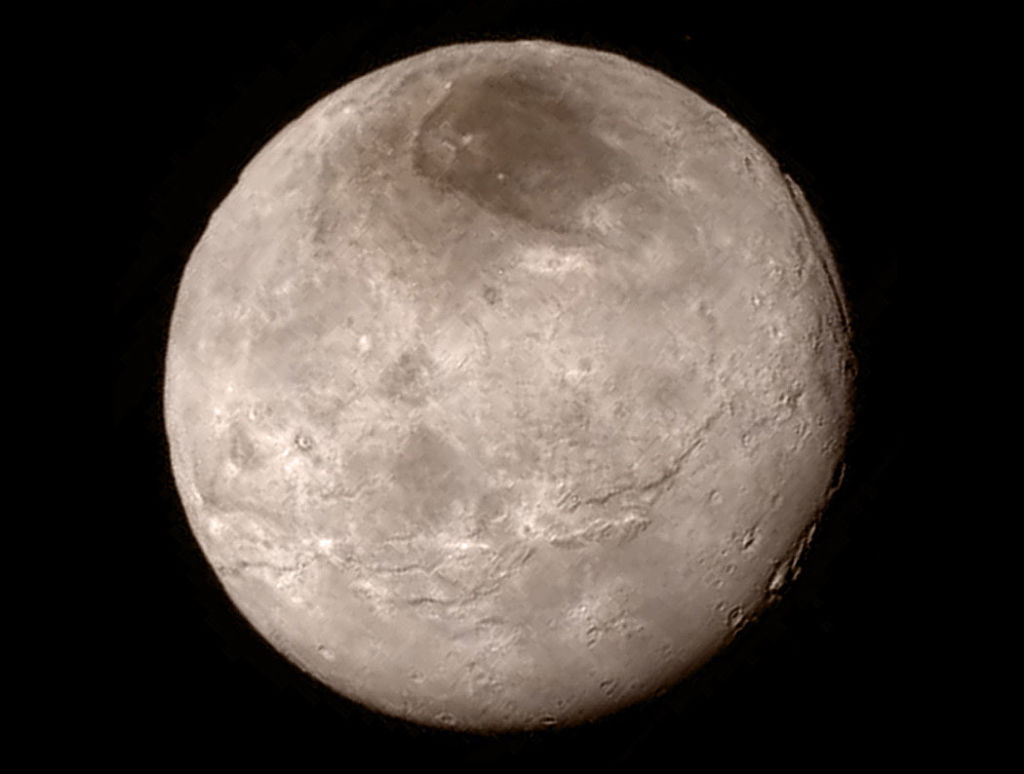NASA scientists are pushing to make Pluto a planet again

A free daily email with the biggest news stories of the day – and the best features from TheWeek.com
You are now subscribed
Your newsletter sign-up was successful
Pluto might get a second chance at being a planet. A group of NASA scientists has submitted a request to the International Astronomical Union (IAU) to broaden the definition of what classifies as a planet. If the new definition were to win IAU's approval, Pluto — presently considered a "dwarf planet" — and 109 other space objects would become planets.
Pluto lost its planetary status in 2006 after the IAU voted in favor of a new, three-part definition of what it takes to be a planet. Pluto met two of the three criteria, as it orbits around the sun and has sufficient mass to maintain the round shape characteristic of planets. However, Pluto is just not big enough to clear other objects out of its orbital space, and thus it was downgraded from the planetary status it had held since 1930.
Alan Stern, head of NASA's New Horizons mission to Pluto and one of the scientists behind the new definition, has deemed Pluto's demotion "bulls--t." The scientists argue the definition determined in 2006 is too narrow, and suggest it should be expanded to include all "round objects in space that are smaller than stars." "In the mind of the public, the word 'planet' carries a significance lacking in other words used to describe planetary bodies," the proposal reads. "In the decade following the supposed 'demotion' of Pluto by the International Astronomical Union, many members of the public, in our experience, assume that alleged 'non-planets' cease to be interesting enough to warrant scientific exploration."
The Week
Escape your echo chamber. Get the facts behind the news, plus analysis from multiple perspectives.

Sign up for The Week's Free Newsletters
From our morning news briefing to a weekly Good News Newsletter, get the best of The Week delivered directly to your inbox.
From our morning news briefing to a weekly Good News Newsletter, get the best of The Week delivered directly to your inbox.
A free daily email with the biggest news stories of the day – and the best features from TheWeek.com
-
 Secured vs. unsecured loans: how do they differ and which is better?
Secured vs. unsecured loans: how do they differ and which is better?the explainer They are distinguished by the level of risk and the inclusion of collateral
-
 ‘States that set ambitious climate targets are already feeling the tension’
‘States that set ambitious climate targets are already feeling the tension’Instant Opinion Opinion, comment and editorials of the day
-
 Mixing up mixology: The year ahead in cocktail and bar trends
Mixing up mixology: The year ahead in cocktail and bar trendsthe week recommends It’s hojicha vs. matcha, plus a whole lot more
-
 Blue Origin launches Mars probes in NASA debut
Blue Origin launches Mars probes in NASA debutSpeed Read The New Glenn rocket is carrying small twin spacecraft toward Mars as part of NASA’s Escapade mission
-
 Dinosaurs were thriving before asteroid, study finds
Dinosaurs were thriving before asteroid, study findsSpeed Read The dinosaurs would not have gone extinct if not for the asteroid
-
 SpaceX breaks Starship losing streak in 10th test
SpaceX breaks Starship losing streak in 10th testspeed read The Starship rocket's test flight was largely successful, deploying eight dummy satellites during its hour in space
-
 Rabbits with 'horns' sighted across Colorado
Rabbits with 'horns' sighted across Coloradospeed read These creatures are infected with the 'mostly harmless' Shope papilloma virus
-
 Lithium shows promise in Alzheimer's study
Lithium shows promise in Alzheimer's studySpeed Read Potential new treatments could use small amounts of the common metal
-
 Scientists discover cause of massive sea star die-off
Scientists discover cause of massive sea star die-offSpeed Read A bacteria related to cholera has been found responsible for the deaths of more than 5 billion sea stars
-
 'Thriving' ecosystem found 30,000 feet undersea
'Thriving' ecosystem found 30,000 feet underseaSpeed Read Researchers discovered communities of creatures living in frigid, pitch-black waters under high pressure
-
 New York plans first nuclear plant in 36 years
New York plans first nuclear plant in 36 yearsSpeed Read The plant, to be constructed somewhere in upstate New York, will produce enough energy to power a million homes